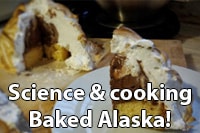
Gotta love science & cooking!
What is a Baked Alaska?
Baked Alaska is a dessert composed of a warm, fluffy meringue shell with a chilly ice cream centre on a base of sponge cake. Some variations use a blow torch to cook the meringue outer shell instead of baking it in the oven. Either way, the whole cake gets blasted with very high heat yet the ice cream doesn’t melt! What kind of sorcery is this? I decided to give it a go and see for myself.
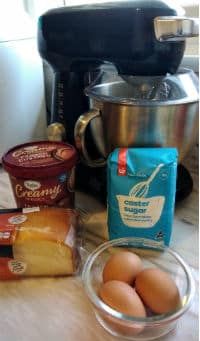
Ingredients
- Ice cream
- 3 egg whites*
- 150 g caster sugar
- Base, you can use a sponge, cake, or brownie!
*Note: final product contains raw egg.
Method
- Separate egg whites from the yolk, and pour into a clean metal bowl.
- Beat on low-medium with an electric mixer or whisk until firm peaks form, approximately 5 minutes.
- Turn beater up to medium-high while gradually adding the caster sugar over 5-7 minutes.
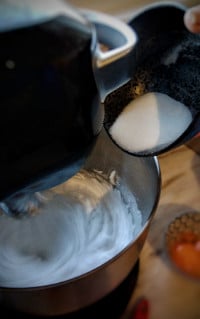
- Beat for a further 2 minutes, until the meringue looks glossy.
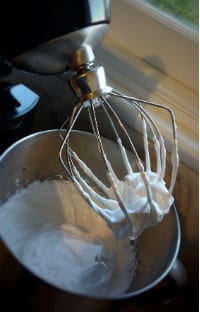
- Line a tray with baking paper and place a nice thick slice of cake. Scoop some ice cream on top.
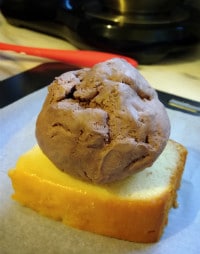
- Use a spoon to dollop the meringue all over the whole thing. Make sure it’s completely covered!
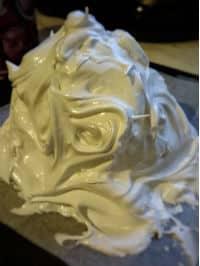
- Bake at 230-250 °C for 2-3 minutes.
- Remove from the oven, slice and serve!
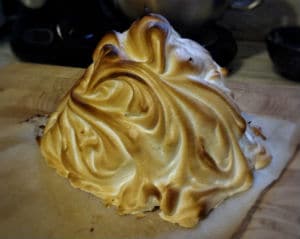
How does it work?
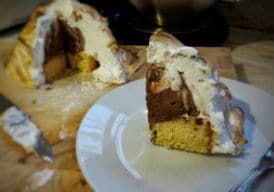
The ice cream didn’t melt! How is that possible?
Heat tends to move from hot things to cold things. Foam and layers of air can make it difficult for heat to travel through, which is why they are great thermal insulators. The meringue that we covered the ice cream with is made up of countless tiny air bubbles that we whipped up in the egg whites, which block the heat of the hot oven from getting to the cold ice cream centre.
We use the same principle to help keep our houses nice and warm in the winter. Plastic foam or fibreglass insulation is often placed between the walls or in the ceiling to trap layers of air and prevent too much heat loss. So when the heater is running or the fire is going, your room stays toasty!
Variable testing
Turn this recipe into a variable testing science project! Here are some ideas:
- Is it really the meringue that stops the ice cream from melting? Try putting some ice cream without meringue in an oven-proof container next to the Baked Alaska and compare!
- Whipping time – would changing the length of time that the meringue is beaten alter the insulating ability of it?
- Amount of sugar – would the amount of sugar added to the meringue affect the structure of the foam and therefore insulation?
- Heat source – Oven, grill, blow torch, or microwave? Which method works and which doesn’t? Which produces the best product and why?
Want more free science experiments?

NEW Primary science teaching book!
“Be Amazing! How to teach science, the way primary kids love”

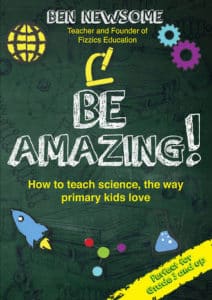

























Comments